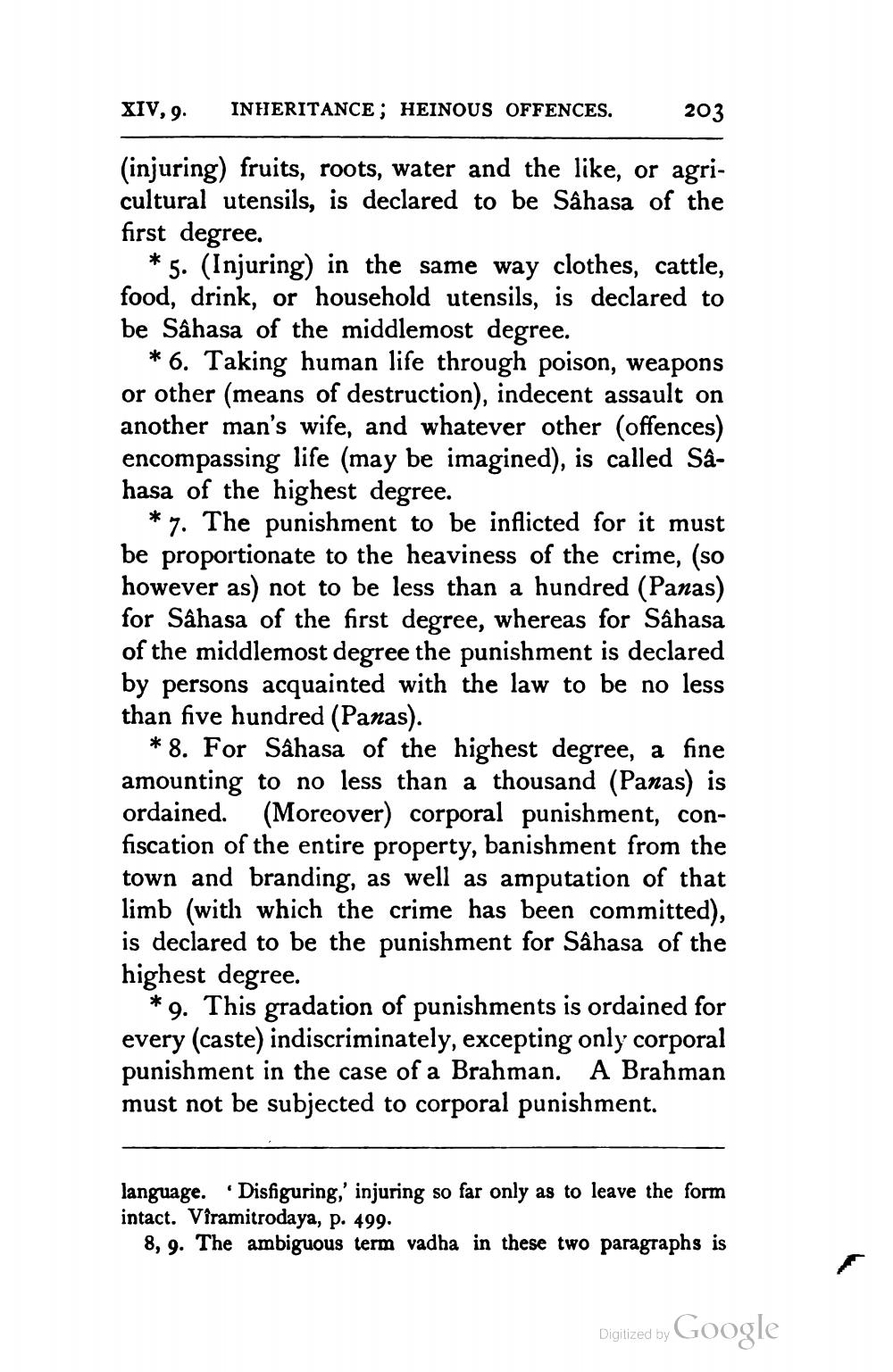________________
XIV, 9.
INHERITANCE; HEINOUS OFFENCES.
203
(injuring) fruits, roots, water and the like, or agricultural utensils, is declared to be Sâhasa of the first degree.
* 5. (Injuring) in the same way clothes, cattle, food, drink, or household utensils, is declared to be Sâhasa of the middlemost degree.
*6. Taking human life through poison, weapons or other (means of destruction), indecent assault on another man's wife, and whatever other (offences) encompassing life (may be imagined), is called Såhasa of the highest degree.
*7. The punishment to be inflicted for it must be proportionate to the heaviness of the crime, (so however as) not to be less than a hundred (Panas) for Sahasa of the first degree, whereas for Sahasa of the middlemost degree the punishment is declared by persons acquainted with the law to be no less than five hundred (Panas).
*8. For Sahasa of the highest degree, a fine amounting to no less than a thousand (Panas) is ordained. (Moreover) corporal punishment, confiscation of the entire property, banishment from the town and branding, as well as amputation of that limb (with which the crime has been committed), is declared to be the punishment for Sâhasa of the highest degree.
*9. This gradation of punishments is ordained for every (caste) indiscriminately, excepting only corporal punishment in the case of a Brahman. A Brahman must not be subjected to corporal punishment.
language.
Disfiguring,' injuring so far only as to leave the form
intact. Viramitrodaya, p. 499.
8, 9. The ambiguous term vadha in these two paragraphs is
Digitized by Google




